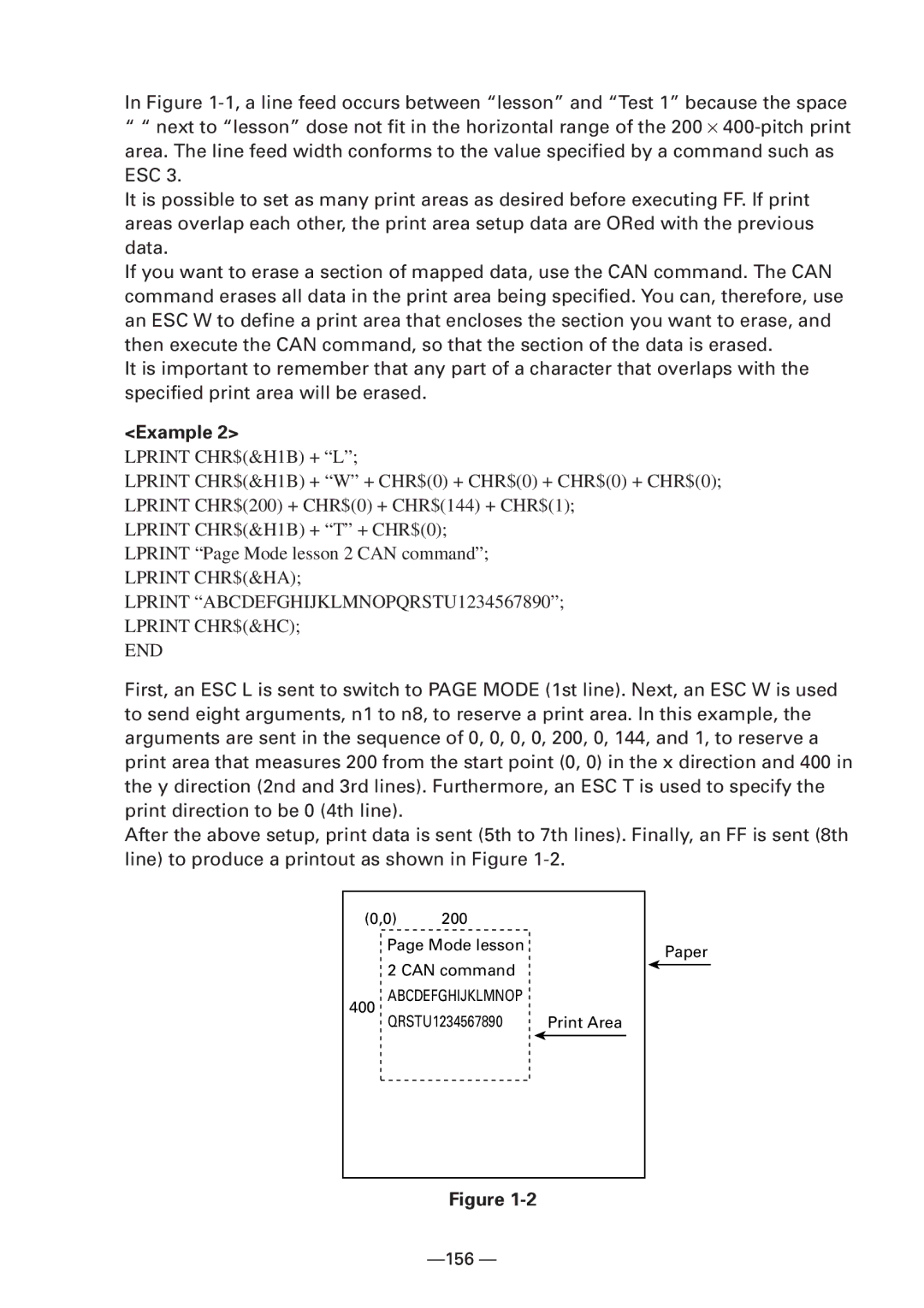
In Figure
““ next to “lesson” dose not fit in the horizontal range of the 200 ×
It is possible to set as many print areas as desired before executing FF. If print areas overlap each other, the print area setup data are ORed with the previous data.
If you want to erase a section of mapped data, use the CAN command. The CAN command erases all data in the print area being specified. You can, therefore, use an ESC W to define a print area that encloses the section you want to erase, and then execute the CAN command, so that the section of the data is erased.
It is important to remember that any part of a character that overlaps with the specified print area will be erased.
<Example 2>
LPRINT CHR$(&H1B) + “L”;
LPRINT CHR$(&H1B) + “W” + CHR$(0) + CHR$(0) + CHR$(0) + CHR$(0); LPRINT CHR$(200) + CHR$(0) + CHR$(144) + CHR$(1);
LPRINT CHR$(&H1B) + “T” + CHR$(0); LPRINT “Page Mode lesson 2 CAN command”; LPRINT CHR$(&HA);
LPRINT “ABCDEFGHIJKLMNOPQRSTU1234567890”; LPRINT CHR$(&HC);
END
First, an ESC L is sent to switch to PAGE MODE (1st line). Next, an ESC W is used to send eight arguments, n1 to n8, to reserve a print area. In this example, the arguments are sent in the sequence of 0, 0, 0, 0, 200, 0, 144, and 1, to reserve a print area that measures 200 from the start point (0, 0) in the x direction and 400 in the y direction (2nd and 3rd lines). Furthermore, an ESC T is used to specify the print direction to be 0 (4th line).
After the above setup, print data is sent (5th to 7th lines). Finally, an FF is sent (8th line) to produce a printout as shown in Figure
(0,0) | 200 |
| |
Page Mode lesson | Paper | ||
2 CAN command | |||
| |||
ABCDEFGHIJKLMNOP |
| ||
400 |
|
| |
QRSTU1234567890 | Print Area | ||
| Figure |
| |
